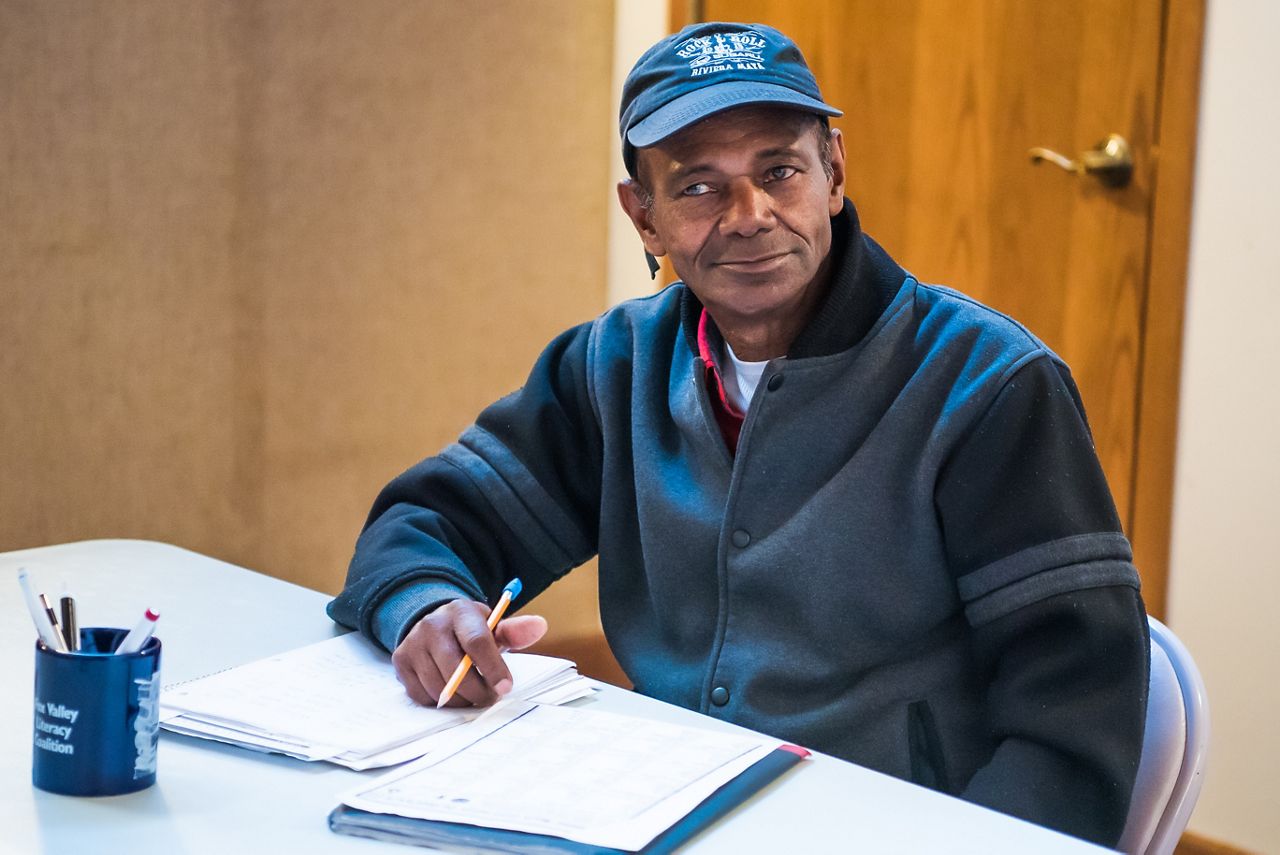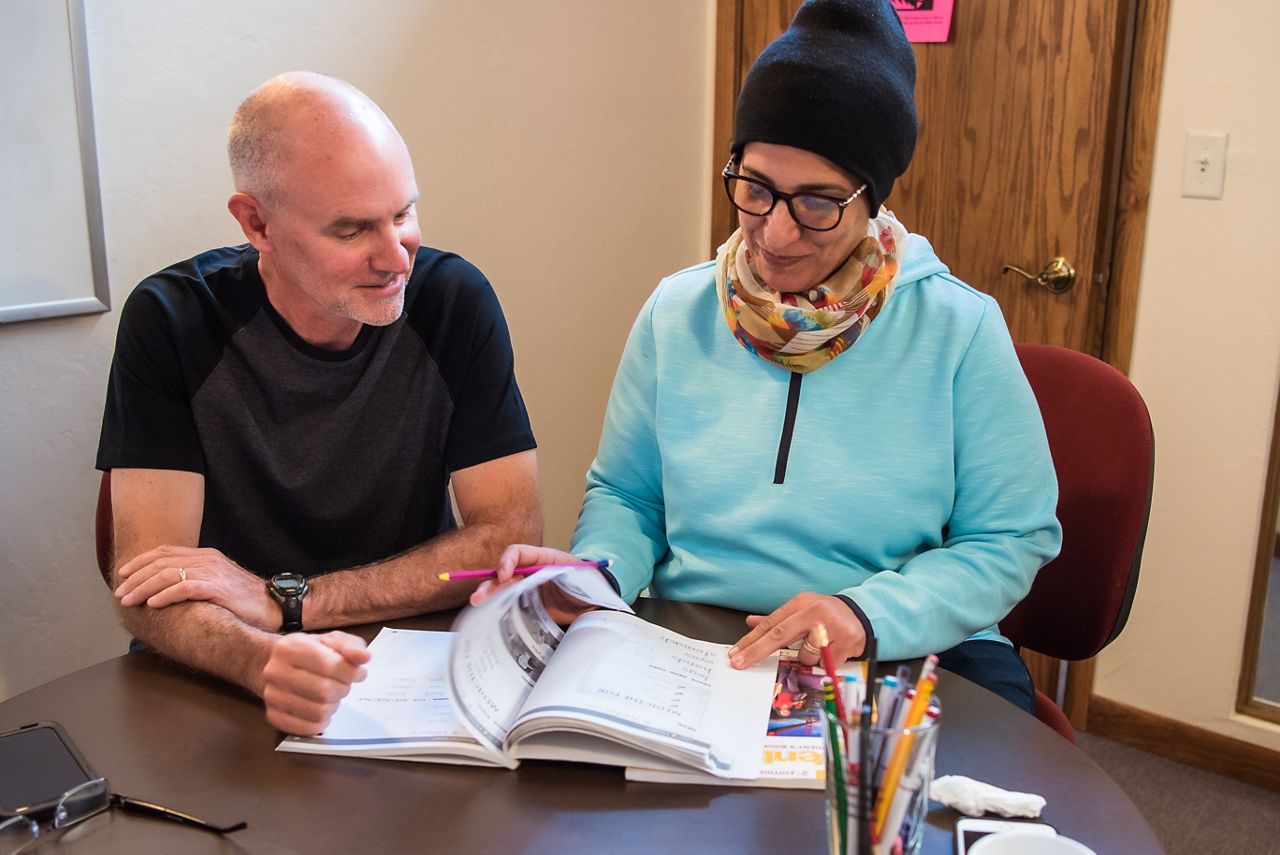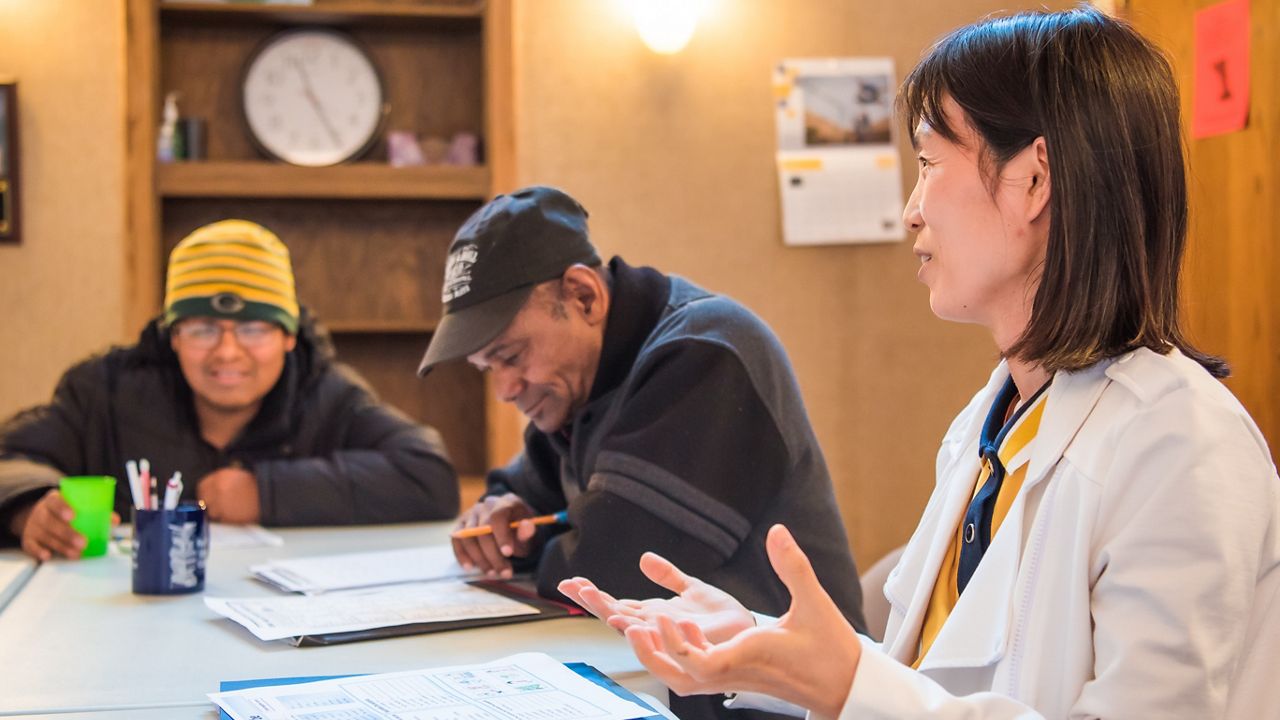APPLETON, Wis. — Of the many who walk through her doors, Paola Sarli already knows their story.
“I feel when you immigrate to another country, most of the time it’s not because you want to, it’s because you have to,’’ said Sarli, the volunteer recruitment coordinator and communications specialist at the Fox Valley Literacy Council.
What You Need To Know
- Fox Valley Literacy was founded in Appleton in 1990 during International Literacy Month
- The Outagamie Waupaca Library System, which supports public libraries in the area, along with the Appleton Public Library led the formation of the organization
- The organization not only teaches English, but helps clients with the skills to procure employment and for those who desire, gain U.S. citizenship
- The organization relies heavily on volunteers. To learn more, contact paola@foxvalleylit.org
“That comes to economic problems, because you can’t afford living in your country anymore,’’ she said. “Or just because you want a better life for your kids. That’s what my parents did.”
You can add human rights violations and political oppression as chief reasons as well.
Fox Valley Literacy, which has been operating for 30 years, is one of those under-the-radar organizations that plays an important role in helping immigrants transition and acclimate to their new life and new surroundings.
“It’s incredible to think about the obstacles (our) students have had to go through, and what they’ve had to escape, and the trauma they’ve been through,’’ said Teresa Wirth, a member of the Fox Valley Literacy board of directors.
“It’s something that is very personal to me. My in-laws were tutors for a lot of the Hmong community who were coming in at the time and helping them learn English and find their way in the Fox Valley. Getting their citizenship, helping them find jobs, getting their driver’s license; helping them engage in the community, and being a part of it, was very important.

“It just makes a richer community when we can all have access to it. And the humane aspect is very important to me and my husband (Kevin). And, you know, when someone comes here, either from another country or another city or another location, it’s hard to fit in and belong. If there’s a language barrier, it makes it especially difficult.’’
The success of Fox Valley Literacy has been a grassroots community effort. There are only five full-time employees and one part-time. But there are 133 active volunteers, said Sarli, and that number swells to between 300 and 400 depending on the time of the year.
They currently serve over 200 students, teaching English, how to build a resume, interview skills and, for those who desire, gain U.S. citizenship.
“We’re not a job placement agency by any means,’’ said Wirth, “but we help them develop the skills to get what they’re looking for as best they can.
“We don’t ever want people to dismiss their native language. It’s important to keep that intact. But English is another way for them to integrate, to help them get what they need.”
All their services are free, and the organization is supported through the likes of United Way and the Community Foundation of the Fox Valley, as well as several local businesses and individuals. Wirth said many students insist on giving whatever financial means they can afford.
While many of the volunteers have teaching backgrounds, many do not. The curriculum and lesson planning are already established, so the learning curve for volunteers is quick. The volunteer and student work from the same book, with the student receiving an additional book for homework assignments.
Waris Samsoor, an Afghan refugee, has been with the program about four months. He said his desire to learn English comes from wanting to take care of himself and his family, without outside sources.
“He said if he were to speak better, then he can take care of his own issues,’’ Samsoor said through his interpreter, Rachel Robbins. “If there are problems, if there are troubles, if there is just anything, then he can take care of it. But right now, he’s not able to do anything like that.’’
Wirth also noted immigrants are making an important impact locally.
“The economic impact is just one of the biggest things,’’ she said. “I mean, it’s a humane thing, as I mentioned, but the economic impact is one of the big things in terms of helping people become settled. And they keep the businesses strong, and not leave the area because they don’t have workers.
“School performance increases, and just the overall quality of life for them. And when we as Midwesterners, or people who live here, get to experience another person from another culture, our lives are much richer, and they’re much stronger.’’
To help its initiative along, Fox Valley Literacy has contracted with several local businesses who have hired immigrants and go on-site to offer English classes, usually twice a week.

“Often there are certain cultural — like work culture phrases and expectations and concepts — that they want to be shared with these workers,’’ said Wirth. “So everybody understands how their organization is run. So they definitely support having a better connection and better, I want to say, integration of their worker into the workplace culture. So the economic impact is greater for them.
“People will likely stay at their job a little longer because they are treated well and they can communicate and understand.’’
Paola Sarli, 23, was once a student herself at Fox Valley Literacy. After her parents left Venezuela and its many humanitarian crises, she wanted to improve her English and found a welcoming place.
“I definitely had a base when I came here, but it was not enough,’’ she said of her English. “So when I came here, everyone was just so supportive; like I felt at home. And I just fell in love with what they do. And I’m like, ‘Oh my gosh, I wish I could work with them one day and just give back with everything they have helped me with.’”
Today she is.
“This is a very important mission and very important work that we do every day,’’ said Sarli, who is also pursuing her education at Fox Valley Technical College. “And we see the benefits around the community.
“If you want to see change in our community, this is a really nice way to do that. Because you literally can change a person’s life just by giving them one hour per week of your time. Sometimes we take for granted that, ‘Oh, you’re able to read a street sign, you’re able to fill up an insurance form by yourself and all of those things.’
“A lot of our students are not able to and if you think about that, ‘Oh, maybe I do have one hour per week that I can give’ and you can help someone. And it’s not just that person, but their family. So it’s a really big impact.’’
Story idea? You can reach Mike Woods at 920-993-1000 or at: michael.t.woods1@charter.com



